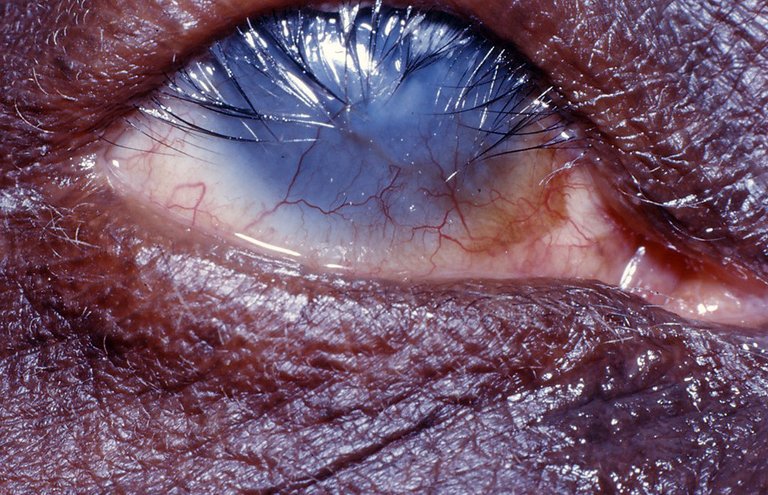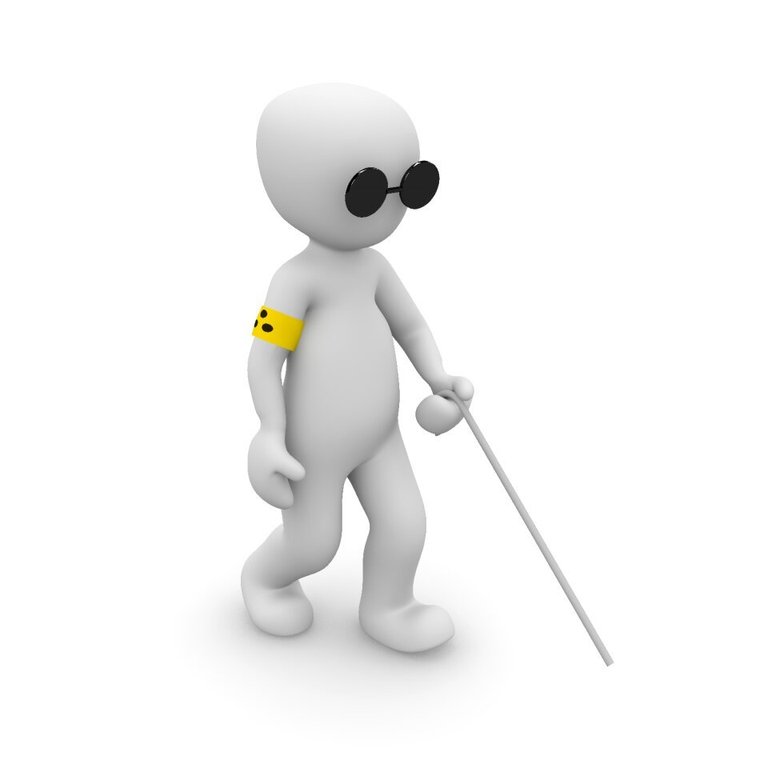Unlocking the Remarkable Power of Perception with Sight loss
The role of our senses in shaping how our brains process and perceive the world is undeniably fascinating. Among these senses, our eyes stand out as the primary conduits for understanding our surroundings. While you might argue otherwise, it's a well-established fact that, when it comes to learning, perception, and cognition, vision holds the lion's share, contributing to roughly 80% to 85% of our sensory input. In contrast, hearing accounts for about 11%, smell around 3.5%, touch 1.5%, and taste a mere 1%.

https://www.flickr.com
The dominance of vision in our sensory experience is evident in the swiftness of its results when compared to hearing, largely due to the fact that light travels faster than sound. Vision gives a lot of information about our environment and while we can smell things, taste and touch have to do with direct contact sight doesn't need direct contact to identify. This is why it is assumed that people who cannot see have a dulled perception and require the use of other senses to identify and relate with their surroundings because they have a low perception of the world and this is thanks to the ability of the brain to adapt.
It has been shown that people who were born blind or became blind early in life are able to hear better and have the ability to extract information from sound compared to people with sight. The brains of people with a loss of sight can utilize sound very well, and they can use their brains to avoid obstacles and perform daily activities as if they have their sight. This is where it becomes amazing, as we begin to wonder how it is that the brain can seem to process visual information even when it cannot see, as well as being able to form pictures in the brain from sounds.
Our eyes are complex organs consisting of the cornea, the transparent front part of the eye, the sclera (the white part), the pupil that regulates light entry, the iris that adjusts light levels, and the retina, which absorbs light at the back of the eye. Light plays a pivotal role in vision, serving as the stimulus that enables the brain to perceive the world. Human eyes can detect light across a narrow range of the electromagnetic spectrum, spanning from 400 to 700 nanometers in wavelength, nestled between infrared and ultraviolet.
The retina behind the eyes has different kinds of photoreceptors made up of three types cone receptors which allow for the seeing of blue, red, and green color, while rod receptor is responsible for low light settings. These receptors send the light that travels through the eyes to the optic nerve which then sends it to the brain. When it reaches the brain, it hits the thalamus first, then to the primary visual cortex that processes the information and sends it to the prefrontal cortex which then combines information from our senses with emotions and memories.
The brain is responsible for a lot of things including filling the blanks for blind spots, and this is why when we blink, we do not fell like we have an interupted sight. Also the brain fills in the gaps of obscuring areas within our sight making us look like we are seeing things better than we might even be seeing. Using Echolocation, it is possible for people without sight to identify locations and create images in their brain. This has been a way for people with no sight to be able to identify texture, distance, and a whole lot of things within the environment.
Using MRI, the brain of people without sight who practice echolocation, interpretation of sounds is done with the visual part of the brain. This helps blind people who practice echolocation to be able to build maps of sight even without using their eyes. The fact that people who echolocate have an increased ability in mobility, independence and wellbeing, doesn't mean that they are disabled because they cannot see again actually, but with every flash and echo, objects become clear, and they are able to identify their 3-dimensional geometry.
It's a testament to the incredible adaptability of the human brain that individuals without sight can not only identify objects but also navigate through their surroundings with remarkable precision. The brain, ever resourceful, constantly finds ways to enhance itself, assisting other senses to create a vivid interpretation of the world around us.
Reference
- https://www.researchgate.net
- https://www.ncbi.nlm.nih.gov/pmc/articles/PMC6777262/
- https://science.nasa.gov/ems/09_visiblelight
- https://www.scientificamerican.com
- https://www.nei.nih.gov
- https://www.ncbi.nlm.nih.gov/books/NBK538493/
- https://www.ncbi.nlm.nih.gov/pmc/articles/PMC3102086/
- https://www.ncbi.nlm.nih.gov/books/NBK545310/
- https://www.kenhub.com/en/library/anatomy/photoreceptors

The blinds are actually good at this echolocation stuff. Was opportune to know someone that was blind while coming. He knows everywhere in his house and also knows how to get to anywhere in his house. I was shock when I saw those stuffs then. They also concentrate a lot also. During my course of training as a nurse, we went for educational visit in the school for the disabled, on getting there, we heard that the school head master was blind and then I became curious to see him. Low and behold he came to work that morning, I saw him as he was about to enter his office. He was holding bunch of keys, I realized he was touching them one after the other without making any mistake. He found the
right key and tried it just once and the office was opened. I was just amazed when he started addressing us without thinking of what to say or words to use. He speaks English fluently also. I started questioning myself on how is all this possible. Thank for the post as you just answered my questions then in your write up.
Thanks for your contribution to the STEMsocial community. Feel free to join us on discord to get to know the rest of us!
Please consider delegating to the @stemsocial account (85% of the curation rewards are returned).
Thanks for including @stemsocial as a beneficiary, which gives you stronger support.
Congratulations @merrymercy! You have completed the following achievement on the Hive blockchain And have been rewarded with New badge(s)
Your next target is to reach 40000 upvotes.
You can view your badges on your board and compare yourself to others in the Ranking
If you no longer want to receive notifications, reply to this comment with the word
STOPCheck out our last posts: